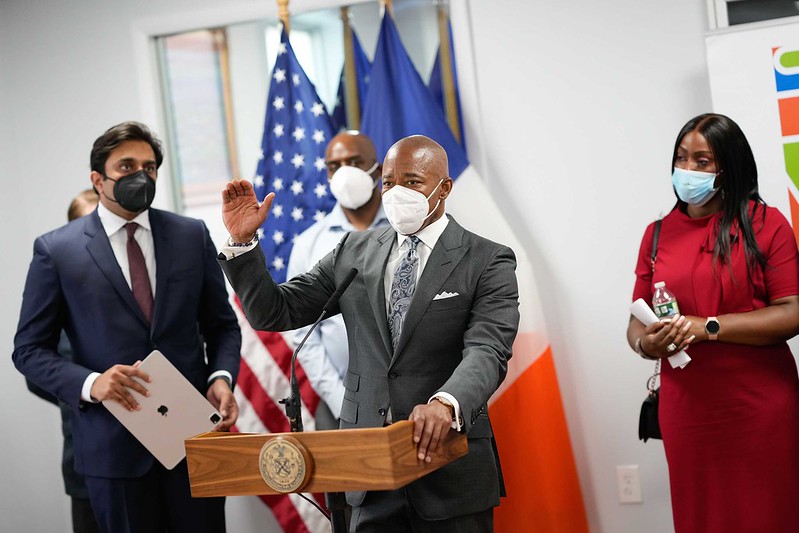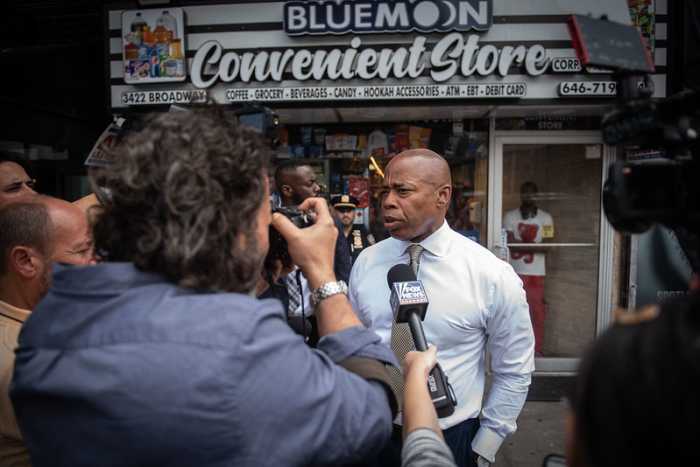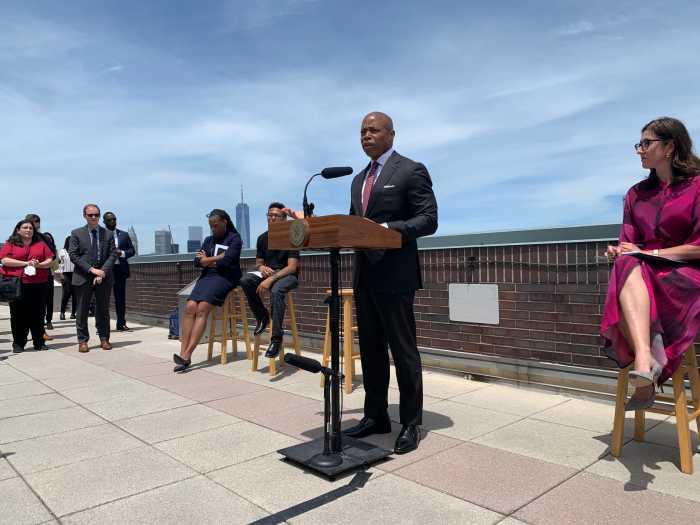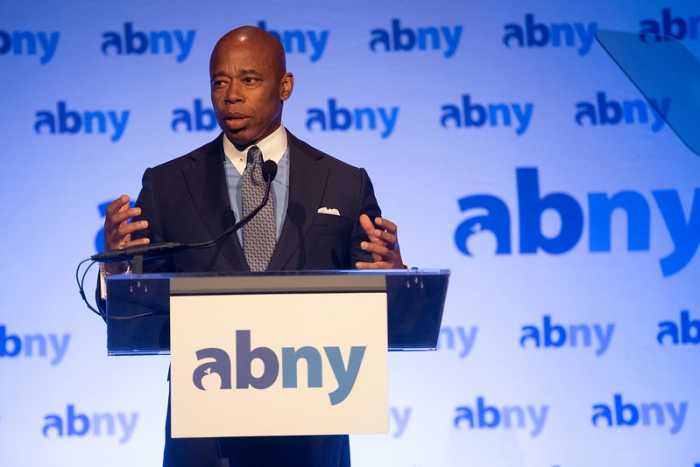As part of Mayor Eric Adams’ strategy to combat the city’s ongoing crime wave, he announced Wednesday his administration is opening a new mental health and addiction treatment center in the east Bronx accepting referrals from the city’s mental health response teams and the local NYPD precinct.
The Bronx Support and Connection Center (SCC), 3050 White Plains Rd. near the Gun Hill Houses public housing project, will be operated by Samaritan Daytop Village – a health and human services non-profit that runs similar programs throughout the five boroughs. City Department of Health and Mental Hygiene (DOHMH) Commissioner Dr. Ashwin Vasan said the site will offer wrap-around short-term services to treat mental health and addiction issues.
The city’s top doc said the Bronx SCC will give individuals struggling with their mental health and substance use a much needed alternative to seeking treatment in an emergency room or falling into the criminal justice system.
“The Bronx Support and Connection Center will serve to break the seemingly endless cycle of housing instability, contact with our law enforcement and legal systems and emergency room visits,” Vasan said. “That is the reality for far too many New Yorkers. With intersecting mental health crises and substance use issues, the support and connection center will serve as an alternative and an opportunity to interrupt that cycle. First responders will be able to guide these New Yorkers to this center, where they can receive immediate short-term supports, and have their basic needs met while working with staff that have a longer term plan in place.”
Joining Adams and Vasan were Samaritan Daytop Village President and CEO Mitchell Netburn, Bronx Borough President Vanessa Gibson and state Senator Jamal Bailey.
Vasan said Bronx center is only the second of these sites to open in the city so far – the other site in East Harlem opened near the beginning of the coronavirus pandemic in 2020.
At the most basic level, Vasan said, the facility will offer things like a hot meal and a place to sleep. It’ll also provide wrap-around services including screenings, assessments, counseling, short-term case management, supervised substance withdrawal and access to naloxone to treat overdoses.
Building these kinds of facilities, the mayor said, is part of the city’s strategy to move responding to mental health crises away from the police and into the hands of trained mental health professionals. This way, he added, those individuals can get the treatment they need in a comfortable environment, rather than getting arrested and languishing on Rikers Island.
“‘If you build it, they will come,’” Adams said, quoting the film Field of Dreams. “And so we built and they’re going to come. They’re going to come and they’re going to walk through the meditation room. They’re going to come and have a place where they can get their medication if needed. They’re going to come and get three meals, a shower, a place to sleep. Just to de-escalate your crisis, instead of having to call the police to respond. And that blue uniform sometimes can aggravate the situation instead of de-escalate the situation.”
Another piece of the mayor’s strategy to tackle the city’s mental health crisis was to expand the Behavioral Health Emergency Assistance Response Division (B-HEARD) started under his predecessor Bill de Blasio. B-HEARD teams – made up first responders like EMTs and FDNY firefighters – respond to specific mental health related 911 calls the NYPD aren’t equipped to handle.
These teams in addition to officers from the NYPD’s nearby 47th Precinct have been charged with referring patients to the Bronx SCC. The facility also accepts walk-ins from anyone seeking help, Vasan said.
“Ultimately, we want to take people who are directly referred and brought here as an alternative to other carceral or other destinations,” Vasan said. “But we also want people to feel like they can just walk through the front door and get help when they need it. And so that’s really the referral pathway.”










